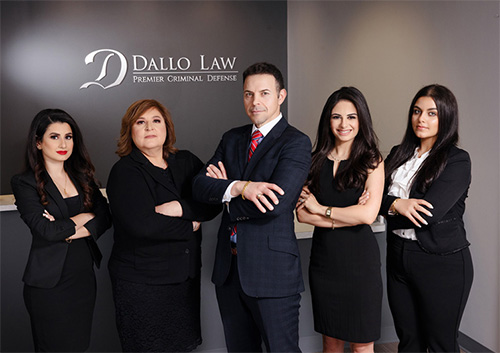Forgery refers to the making, altering, use or possession of a false writing with the specific intent to defraud anyone. It is one of the most common white-collar crimes in the state of Michigan. Unfortunately, a forgery charge can affect an individual’s personal and professional life for years to come.
Aside from jail time, the defendant may be ordered to pay steep criminal fines and court costs. Their criminal record can also be affected as a result of the conviction, which can potentially be a barrier for employment opportunities. Forgery accusations can even affect the defendant’s immigration status if they are a non-U.S. citizen.
Fraud Defense Attorney in Bloomfield Hills, MI
If you have been arrested for forgery charges, you should immediately take steps to defend yourself by obtaining skilled legal representation. Your freedom and legal rights are on the line. With years of experience in criminal defense, Michigan fraud attorney J. Dallo at Dallo Law, P.C. is dedicated to securing the best possible outcome for each client he represents.
Dallo Law, P.C. serves clients throughout the greater Oakland County and Macomb County area including Pontiac, Troy, Waterford Township, Oakland Charter Township, Royal Oak, Clarkston, Rochester Hills, Auburn Hills, Birmingham, Utica, Romeo, Warren, Sterling Heights, Eastpointe, St. Clair Shores and New Baltimore. Call (248) 283-7000 to set up your first consultation with criminal defense lawyer J. Dallo. He is ready to build a solid defense against your forgery charges.
Information Center
- Forgery Charges in Michigan
- Criminal Penalties for Forgery in Michigan
- Common Fraud Charges in Michigan
- Additional Resources for Forgery
Forgery Charges in Michigan
Forgery can occur in several forms in the state of Michigan, such as signing another person’s name on a check or falsifying official government documents. According to Michigan Penal Code 750.248, an individual can be charged with forgery if they falsely make, forge, or alter any of the following public documents with the intent to defraud:
- Charter
- Deed
- Will
- Testament
- Bond
- Writing obligatory
- Letter of attorney
- Policy of insurance
- Bill of lading
- Bill of exchange
- Promissory note
- Waiver, release, claim, or demand
- Accountable receipt for money, goods, or other property
Criminal Penalties for Forgery in Michigan
Forgery carries harsh penalties under Michigan law. Under Michigan Penal Code 750.248, forgery is a felony. An individual may face up to 14 years in prison, depending on the type of document involved in the crime.
For example, according to Michigan statute 750.251, forgery bank bills or other documents issued by a financial institution in the United States or Canada can result in a felony, punishable by up to 7 years in prison. Michigan law also prohibits and penalizes the following forgery acts:
- Possession of counterfeit notes with intent to utter them as true (Michigan Penal Code 750.251): Punishable by up to 7 years in prison.
- Uttering counterfeit notes as true (Michigan Penal Code 750.252): If an individual possesses 10 or more counterfeit notes with the intent to present them as true, they can face up to 7 years of imprisonment.
- Tools and implements for counterfeiting bills or notes (Michigan Penal Code 750.255): If an individual makes or possesses the tools necessary to create counterfeit bills or notes, they can face up to 10 years in prison and up to $5,000 in fines.
Common Fraud Charges in Michigan
Fraud is a term used to describe when an individual is intentionally deceptive in order to obtain an unlawful gain. It encompasses a wide range of criminal offenses. Unfortunately, the penalties for fraud-based crimes are not light. This is why it’s important to seek experienced legal counsel from a Michigan fraud attorney. The following are some examples of white-collar crime cases criminal defense attorney J. Dallo accepts:
- Healthcare Insurance Fraud: An individual that provides false or misleading information to a health insurance company in order to obtain a certain healthcare benefit can face healthcare insurance fraud charges. This white-collar crime is punishable by up to 4 years in prison and up to $50,000 in fines.
- Credit Card Theft: Michigan Penal Code 150.157n makes it illegal to steal or possess the Financial Transaction Devices (FTDs) of another person, such as credit cards, debit cards, and PINS. A person who knowingly possesses a fraudulent or altered financial transaction device is guilty of a felony punishable by up to 4 years in prison and up to $5,000 in fines.
- Identity Theft: It is unlawful to obtain services, goods, money, property, employment, or confidential records by using another person’s identifying information with the intent to withhold, conceal, defraud, or misrepresent their identity. A person who is charged with identity theft can face up to 5 years in prison.
Additional Resources for Forgery
Michigan Penal Code: Forgery –Visit the official website for the Michigan legislature to view section 750.248 which constitutes the forgery charge. Click the link to view the elements that constitute the offense and a list of public documents that are prohibited to forge.
FBI: White Collar Crime – Visit the official Federal Bureau of Investigation (FBI) page to learn more about white collar crimes. The webpage lists when the term was invented, what constitutes corporate fraud, money laundering and securities/commodities fraud.
Forgery Oakland County Attorneys, MI
If you or someone you know has been charged with forgery, it is important to act immediately. Attorney J. Dallo has years of experience defending clients charged with complicated white collar crimes. He can help you protect your rights, no matter how severe the charges. Contact him today to receive assistance in your case.
Dallo Law, P.C. works with clients throughout Dakota County, including Burnsville, Eagan, Hastings, Inver Grove Heights, Lakeville, Mendota Heights and Rosemount, as well as anywhere in the Twin Cities region, including Hennepin County, Ramsey County and Anoka County. Call (248) 283-7000 to obtain a confidential consultation.









